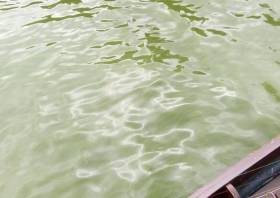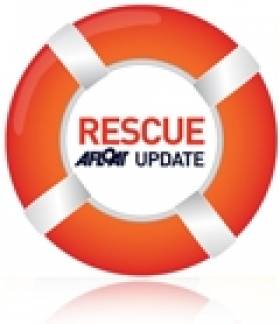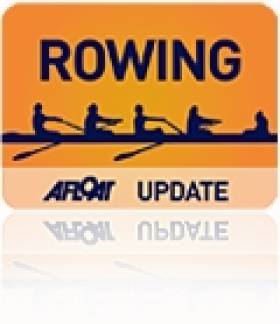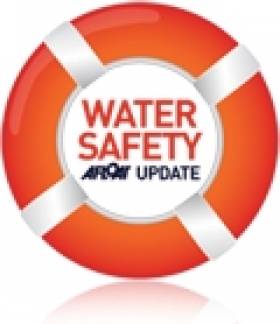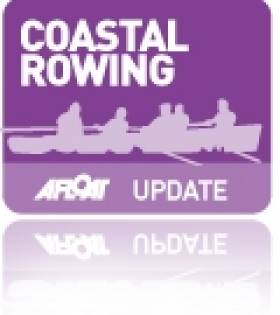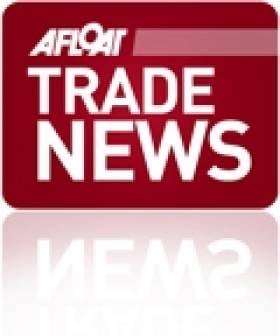Displaying items by tag: Killarney
Anglers Appeal Proposed Development of Nearly 250 Homes in Killarney Over Wastewater Fears
Anglers in Killorglin are appealing plans recently green-lit by Kerry County Council for a development of nearly 250 homes outside of Killarney.
As the Kerryman reports, the Laune Salmon and Trout Anglers’ Association says it “did not receive the regard it is supposed to get” in planners’ assessment of the proposed development at Cronin’s Wood, east of the Co Kerry town.
In their appeal to An Bord Pleanála, the anglers claim the development is lacking the appropriate infrastructure for wastewater treatment and express concerns over surface water run-off.
The angling association also claims that the Environmental Impact Assessment (EIA) screening and Appropriate Assessment was flawed.
The Kerryman has more on the story HERE.
Toxic ‘Algae’ Threatens Wildlife In Killarney Lake
#Toxic - Pet owners have been advised to be vigilant over an outbreak of toxic blue-green ‘algae’ in a Killarney lake, as The Irish Times reports.
Lough Leane has been signposted by Kerry County Council over the presence of Cyanobacteria that has turned the waters a soupy pea-green colour.
A number of dogs died after exposure to the bacteria during a previous bloom on the lake shore in 2016.
Suspected similar cases have also been reported at Lough Mask as well as waterways further east, including Ballymore Eustace on the River Liffey.
Meanwhile, scientists at the Galway-Mayo Institute of Technology are preparing to use drones to test the water quality of lakes on the West Coast.
GMIT’s Marine and Freshwater Research Centre has secured €132,000 in funding from the EPA for the scheme that will allow for real-time feedback of camera images and data.
Licensed drone pilots will work with lake biologists and water scientists on the two-year project, part of Ireland’s mandate under the EU’s Water Framework Directive.
The Irish Times has more on this story HERE.
Kayakers Spend Night Stranded On Island
#Rescue - It was an unexpected night outdoors for two kayakers who were stranded on an island in the Black Valley near Killarney after losing their paddles.
As the Irish Examiner reports, Valentia Coastguard were unable to mount a rescue by helicopter due to dangerous weather on Sunday night (2 November).
But the man and woman were provided with a tens and supplied by Killarney Lake Rescue and finally retrieved by the Shannon-based search and rescue helicopter yesterday morning.
#rowing – Killarney Rowing Festival will celebrate the oldest regatta in the world and wonderful rowing tradition on the Lakes of Killarney, on Sunday 28th July, 2013, at Killarney Golf and Fishing Club, Killarney, County Kerry. The Festival will host the World most coveted rivals, Oxford and Cambridge Boat Club.The unique event also co-insides with 'The Gathering Ireland 2013' a Tourism Ireland initiative honouring Ireland's Diaspora and historical and cultural links to Ireland. Killarney's tourism success owes much to the visit of Queen Victoria to Killarney in 1861.
The Annual KillarneyRegatta in now in its 228th year is the oldest traditional regatta in the World, steeped in history and raced on Lough Lein, one of the famous Lakes of Killarney. There are five remaining active clubs in the town and hinterland of Killarney, each operating from various boathouses along the shores of Lough Lein. The Clubs, namely, Muckross Rowing Club, Flesk Valley RC, Workmen's RC, Commercials RC, St Brendan's RC, and Fossa RC. The Type of boat is unique to the Lakes of Killarney and known as 'The Killarney Sixes' wooden in structure, wooden oar, fixed seat, the boats were originally designed and built by Salters in Oxford.
Both Oxford and Cambridge Boat Clubs were delighted to receive the invitation and will be joining the Killarney Rowing fraternity for the weekend. Flights to Kerry Airport, two nights accommodation, have been kindly sponsored by Tourism Ireland, with Killarney Chamber of Commerce and Tourism and Killarney Branch of the Irish Hoteliers Federation providing accommodation. The boats will be ready and waiting at the pier at O'Mahoney's Point, Killarney Golf and Fishing Club.
Speaking about the event, Festival Director Andrew Wharton commented " it's one of those classic events for Killarney, the perfect location and a wonderful way to celebrate our rowing tradition. The cultural links that have bound this sport together, with the famous Caseys of Sneem, the Great River Race in London which has been won by many Killarney Clubs. As a sport, rowing keeps getting more popular, especially with all clubs embracing many types of rowing, be it, coastal, sliding, gig and fixed seat racing. It means rowing continues all year round. It will be such a spectacle to see so much colour and life on Lough Lein. The Killarney people have welcomed the festival, their generosity is breathtaking. They know the importance of the heritage, History and of course the friendly rivalry that binds us all together..Oxford and Cambridge will definitely be having a fantastic time in Killarney"
The Festival will be a day of fun and celebration, and will see Oxford and Cambridge competing with the coastal boats of South and Mid Kerry and the most coveted race of the day, Killarney Rowing Clubs taking on the world's greatest rivals, for the famous 'Lakes of Killarney 'Salter's Cup' which was won the famous Casey Brothers of Sneem on three occasions in the 1920's and 30's.Noel Casey Stephen and Paddy Casey will be on hand to present the precious Cup. The first race of the day (11.45) is the Irish Universities v Oxford and Cambridge. There are 11 races in total, including U14/U16, boys and boys, open races, intermediate and senior races, in both Killarney sixes and coastal boats.
Niall Gibbons, CEO of Tourism Ireland, said: "We are delighted that the Oxford and Cambridge boat clubs will travel here for the Killarney Rowing Festival, particularly in this special year of The Gathering Ireland. Since last year, Tourism Ireland has been promoting The Gathering Ireland extensively in Great Britain and elsewhere around the world, targeting millions of people who have ancestral links to Ireland, or those who have an affinity for the destination and all things Irish. Millions of people in GB have connections with Ireland and we are reaching out to them, encouraging them to come home for what is a truly special year."
A true spectacle on the day will be the site of 100 strong South Kerry men rowing The Seine Boat Race, unique to South Kerry. Historically the Seine Boat was used by fishermen to haul fish captured in floating nets. Seine Boats are timber built vessels with 12 oarsmen and a coxswain who calls out the stroke. The Regattas in South Kerry are held in Cromane, Ballinskelligs, Waterville, Valentia, Portmagee, Cahirciveen, Caherdaniel, Sneem,Over the Water, and Templenoe. The race is usually over eight grueling kilometers.The Seine Boat races are a true test of strength, endurance and team work.
During the weekend both Oxford and Cambridge crews will pay a visit to Muckross house for lunch and take a boat tour on lakes of Killarney, to showcase the famous scenery and landscape with an emphasis of the importance of Queen Victoria's historical trip to Killarney and Muckross in 1861. There will be an opportunity for the crews to visit Queen Victoria's Barge in the 'Old Boat House' at Muckross. A Civic Reception at The Lake Hotel, Killarney will be hosted by Killarney Town Council later that Saturday afternoon. Both crews will be free to savour Killarney's wonderful night life. All Rowing Clubs will be ready action on Sunday 28th at 10.00am at O'Mahoney's Point for a practice run on the 'Killarney sixes'.
Another Highlight of the Day will be The Tug O' War' competition - refereed by Henry Clifton, one of the greats in Rowing. clubs and organisations are being encouraged to enter teams for two great charities - Brendan Heffernan's Mercy Hospital Oncology Unit Fund and The Palliative Care Unit Kerry General Hospital. Brendan is Honorary Treasure of Workmen's Rowing Club and is receiving treatment at the Mercy Hospital, to date he has raised over €10,000.
The Killarney Golf and Fishing Club are delighted to be the venue of this year's Festival, providing car parking facilities, a BBQ , outdoor children's activities and refreshments. The local rowing clubs will provide the traditional sandwiches, tea and buns to the rowers all part of a perfect regatta day. All we need is the weather!.
Rowing plays an enormous part of the sporting life in Killarney, in the 2008 Olympic Games, Three Killarney Oarsmen rowed for Ireland - Paul Griffin, Sean Casey and Cathal Moynihan, all members of Muckross Rowing Club, Ireland's oldest rowing club.
For further information:Valerie O'Sullivan contact 087-2629375/[email protected]
Four More Drownings Bring Renewed Water Safety Appeal
#WaterSafety - Four more people have drowned in separate incidents around Ireland as the heatwave continues.
As RTÉ News reports, a 24-year-old man died while swimming in the sea near Ardara in Co Donegal yesterday afternoon (20 July).
Later, the body of a second victim was recovered from the Shrule River in Newtownstewart, Co Tyrone after getting into difficulty.
A third man in his 60s is was drowned after failing to return from a swim in a quarry near Carrick-on-Suir. His body was recovered earlier today.
The tragedies follow news of a 19-year-old who drowned while swimming with friends in Lough Leane in Killarney on Friday evening (19 July).
And a woman in her 30s was lucky to be rescued after getting into difficulty swimming in the River Nore near Kilkenny. She is currently in a serious but stable condition in hospital.
Irish Water Safety have renewed their appeal for the public to take extra care when taking to the water during this extraordinary hot weather that had already claimed seven lives as of Thursday last.
# COASTAL ROWING: The univsersities celebrated as the oldest rowing rivals will celebrate the oldest traditional regatta when crews drawn from Oxford and Cambridge alumni compete at Killarney Rowing Festival on Lough Lein on July 28th. The boat used will be the Killarney Six, a wooden boat with a fixed seat which was originally designed and built by Salters in Oxford. The event is part of ‘The Gathering’ and Queen Victoria’s stay in Killarney in 1861 will be marked. The Killarney Regatta itself is set for June 30th.
MGM Boats Put a Boating Swing into the Irish Open
Leading Irish boat dealer MGM Boats Ltd is playing golf this weekend. While the Dun Laoghaire firm may not be teeingg off in Killarney, Gerry Salmon, Martin Salmon anf Joe Hill are on the course as the Irish Distributors of Sunseeeker boats, an official sponsor of the Irish Open Golf Tournament 2011.
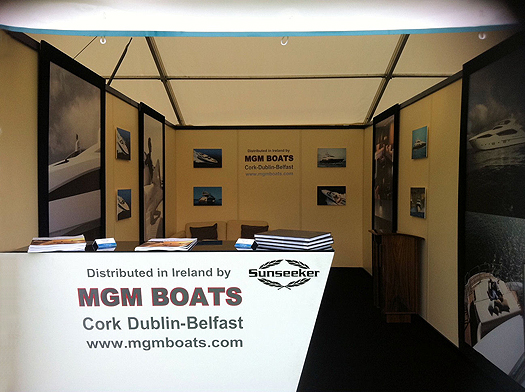
The event is held at the Killarney Golf and Fishing Club 28th to 31st July. MGM Boats Have a stand in the Tented Exhibition Area area and also have a Sunseeker XS Sport on Display. The Salmon's are in attendance for the duration of the event.


























